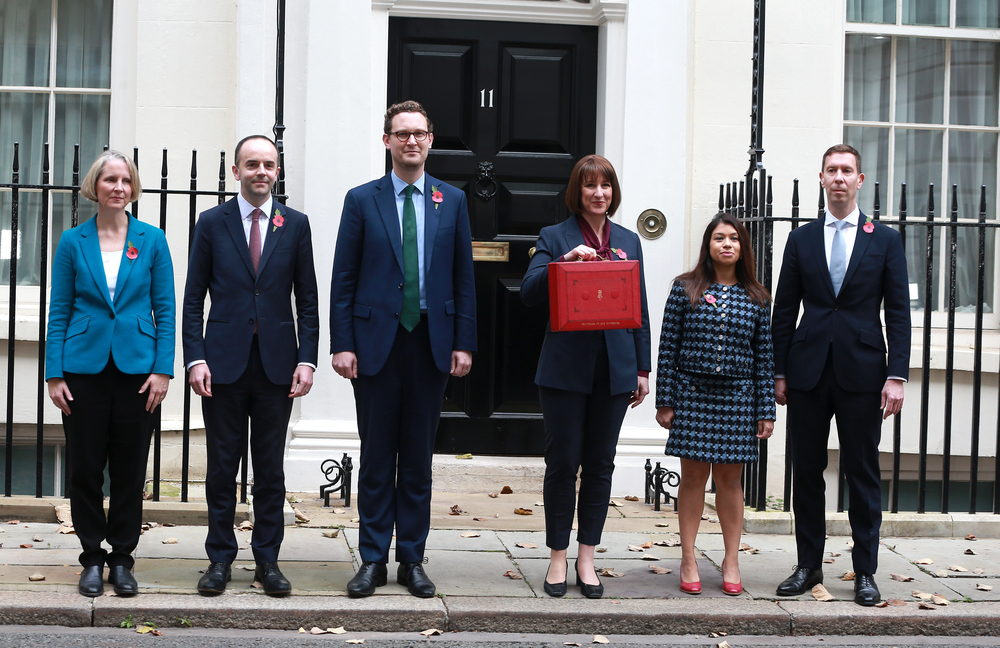In July 2025, two pivotal initiatives signal a concerted effort to bolster the UK’s economic competitiveness and fiscal sustainability. The City of London Corporation has proposed a groundbreaking financial services investment hub to secure the Square Mile’s position as a global financial leader, potentially unlocking £10 billion in capital. Concurrently, opposition leader Kemi Badenoch has reaffirmed her support for the triple lock pension while advocating for reforms to working-age benefits, responding to warnings from the Office for Budget Responsibility about soaring costs. These developments, announced on 10 July 2025, reflect a dual focus on attracting investment and ensuring long-term economic stability, addressing critical challenges in the UK’s financial and welfare systems.
A New Financial Powerhouse: The Investment Hub Proposal
The City of London Corporation, in collaboration with the Treasury, has called for the establishment of a financial services investment hub to reinforce the Square Mile’s status as a world-leading financial centre. Detailed in a report released on 10 July 2025, the hub is designed to unlock up to £10 billion in capital by streamlining investor engagement. Described as a “strategic one-stop shop” for international investors, it will offer tailored support from market entry to expansion, creating a “unified, investor-centric, and digitally enabled UK model.” This initiative aims to provide seamless access to regulatory guidance and foster public-private partnerships to deliver its services.
Chris Hayward, Policy Chairman at the City of London Corporation, underscored the urgency of the proposal: “This is a now or never moment for UK financial services. If we don’t act decisively, we risk losing our global position and the economic prosperity, jobs, and innovation that come with it. Other markets have introduced services that fast-track market entry, including investor concierge services and fully coordinated government and regulatory support. The UK must urgently first match, then exceed these standards to remain competitive.”
The need for the hub is driven by a 4% decline in the UK’s market share of financial and professional services foreign direct investment projects between 2017 and 2024, a period when rival financial centres have seen accelerated growth. Despite the UK’s strengths—its time zone, robust legal system, and global financial infrastructure—the report argues that these must be paired with modernised, frictionless investment services to counter competitive pressures. S&P Global researchers noted a “sustained downturn” in UK firm headcounts in May 2025, with staff leavers not replaced and demand for new work slumping due to US tariff turmoil. The investment hub aims to reverse this trend by attracting global capital, supporting job creation, and fostering innovation in financial services.
Reforming Welfare for Economic Growth: The Triple Lock Debate
In a parallel effort to address fiscal challenges, opposition leader Kemi Badenoch has reaffirmed her support for the triple lock pension, a policy introduced by former Chancellor George Osborne in 2012, while calling for reforms to working-age benefits. Speaking at the Centre for Social Justice on 10 July 2025, Badenoch responded to warnings from the Office for Budget Responsibility (OBR), which highlighted that the triple lock’s costs are projected to be three times higher by the decade’s end than initial 2012 estimates. The OBR cautioned that the Labour government’s ability to fund both the triple lock and other benefits is unsustainable, prompting calls for reform.
Badenoch defended the triple lock as a “Conservative policy,” arguing that pensions are distinct from working-age benefits. “Those pensions are not working-age benefits,” she stated, emphasising that increasing employment is key to addressing economic growth challenges. “If we get more people into work, that will help solve the general problem of growth. There are too many people who are out of work.” She also criticised the current welfare system, describing the UK as a “welfare state with an economy attached” and blaming Labour for rushed savings attempts that faltered due to backbencher opposition.
Badenoch highlighted the strain caused by £1 billion monthly benefits expenditure on foreign nationals, advocating for curbs on health and disability benefits as a starting point. She credited former Work and Pensions Secretary Ian Duncan-Smith for reducing welfare spending, lowering unemployment, and introducing Universal Credit. However, she noted flaws in the disability assessment system, which was not designed to include conditions like ADHD or obesity in schemes like Motability. A Centre for Social Justice report, supported by Badenoch, suggested that curbing disability payments could save £9 billion, warning that the current system is a “ticking time bomb” for the UK economy. “It is a fiscal disaster waiting to happen,” Badenoch said, criticising Labour’s failure to address these issues in opposition.
City firm St James’s Place echoed calls for pension reform, with Claire Trott, head of advice, suggesting alternatives like freezing the state pension or increasing access to pension credit to target support to low-income pensioners. “If reform were to be considered, any proposal would need to ensure adequate support for those on the lowest incomes,” Trott noted, cautioning that means testing is unlikely due to high implementation costs.
Synergies in Economic Strategy
Both initiatives address critical economic challenges facing the UK. The City of London’s investment hub aims to bolster the financial services sector, which contributes significantly to GDP and employs thousands across the Square Mile and beyond. By streamlining investor engagement and offering regulatory support, the hub seeks to reverse the 4% decline in foreign direct investment and compete with global financial centres offering concierge-style services. Its public-private partnership model ensures collaboration between government, regulators, and industry, fostering a dynamic environment for growth and innovation.
Badenoch’s welfare reform proposals complement this by addressing fiscal sustainability, a key factor in maintaining investor confidence. The triple lock’s escalating costs, combined with £1 billion monthly benefits payments to foreign nationals, strain public finances, potentially deterring investment. By advocating for increased employment and targeted welfare reforms, Badenoch aims to reduce dependency and boost economic productivity, aligning with the investment hub’s goal of unlocking capital for growth. The Centre for Social Justice’s proposed £9 billion savings from disability payment reforms could free up resources for investment in high-growth sectors, further supporting the UK’s economic competitiveness.
Navigating Competitive and Fiscal Pressures
The investment hub faces the challenge of competing with global financial centres that have already implemented investor-friendly services. The UK’s declining market share underscores the urgency of modernising its approach, with the report highlighting the need for digital tools and coordinated support to attract international capital. The downturn in professional services headcounts, exacerbated by US tariff uncertainties, adds pressure to act swiftly to retain the Square Mile’s global standing.
Similarly, the triple lock pension debate highlights fiscal tensions. The OBR’s warning of unsustainable costs, coupled with Badenoch’s critique of Labour’s rushed savings attempts, points to the need for a balanced welfare system. St James’s Place’s suggestion of pension credit expansion offers a pragmatic alternative, ensuring support for vulnerable pensioners while addressing fiscal constraints. Both initiatives require careful implementation to avoid unintended consequences, such as deterring investors or harming low-income pensioners.
A Vision for a Competitive UK
The City of London’s investment hub and Badenoch’s welfare reform advocacy represent a dual strategy to strengthen the UK’s economic future. The £10 billion investment hub promises to revitalise financial services by attracting global capital and fostering innovation, ensuring the Square Mile remains a world-leading financial centre. Meanwhile, targeted welfare reforms aim to enhance fiscal sustainability and boost employment, creating a more resilient economy. Together, these efforts signal a commitment to unlocking the UK’s full potential, balancing competitiveness with fairness to drive prosperity for all.







